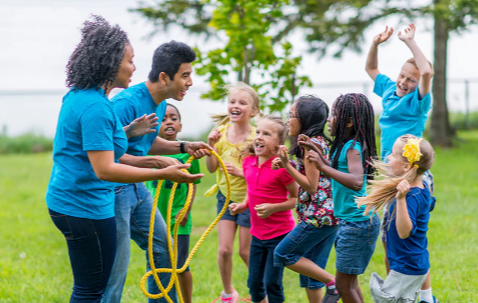Summer Camp Essentials for a Safe and Fun Experience

Summer camp is a structured program designed to provide children and teens with opportunities for outdoor activities, learning, and social interaction during school breaks. It often includes overnight stays or day sessions and covers a range of interests such as sports, arts, STEM, and adventure. The primary purpose of summer camp is to support personal growth, skill development, and the building of friendships in a supervised, engaging environment.
These camps vary widely in focus and duration, offering specialized programs for different age groups and interests. Whether it’s a local day camp or a longer residential experience, summer camps create a unique space for participants to explore new skills and gain confidence outside the home or school setting.
Many camps now include holistic activities that balance physical, mental, and social development. From adventure and sports to creative arts and academic enrichment, the variety ensures that each camper can find an experience aligned with their individual needs and goals.
Types of Summer Camp
Summer camps vary by structure, duration, and focus, meeting diverse needs and interests. Each type offers different experiences, schedules, and levels of independence, helping families choose based on their priorities.
Day Camps
Day camps operate during daytime hours, typically from morning until late afternoon. They suit children who prefer returning home each evening, providing a structured environment without overnight stays.
Activities at day camps often include sports, arts, science workshops, and outdoor play. These camps emphasize skill-building and social interaction in a safe, local setting. They can range from a few days to several weeks and often allow for flexible scheduling.
Parents appreciate day camps for convenience and control over daily routines. Children benefit from diverse activities without the challenge of extended separation from family.
Overnight Camps
Overnight camps provide full-day programs with accommodations for participants to stay on-site, usually in cabins or lodges. They typically last one or more weeks and focus on community living and extended engagement in activities.
These camps encourage independence and social skills by immersing campers in a shared environment, often surrounded by nature. Activities can include hiking, swimming, team sports, arts, and campfires.
Families choosing overnight camps prioritize deeper development in resilience, teamwork, and confidence. The extended format suits children ready for more responsibility and interactive experiences with peers.
Specialty Camps
Specialty camps focus on particular interests or skills, such as STEM, arts, sports, or accommodations for special needs. They provide intensive programs in their designated areas, often with expert instruction.
Common specialty camps include coding camps, basketball clinics, or creative arts workshops. These camps may be day or overnight and attract children wanting to develop specific talents or explore new passions.
They appeal to families looking for targeted skill-building or personalized support. Specialty camps offer focused learning environments that differ from general activity-based camps.
Benefits of Summer Camp
Summer camp offers children a range of experiences that contribute to their growth and development. It provides opportunities to interact with peers, learn new skills, and stay physically active in a structured environment.
Social Development
Summer camp creates a unique setting for children to expand their social networks and develop interpersonal skills. Campers engage in group activities that require cooperation, communication, and conflict resolution.
Living away from family, even briefly, encourages independence and adaptation to new social situations. Children learn to respect differences, build friendships, and develop empathy through shared experiences.
The camp community often involves diverse age groups and backgrounds, which helps children improve their ability to work in teams and build inclusive relationships. These social skills extend beyond camp and support long-term personal development.
Skill Building
Camp programs emphasize hands-on learning, allowing children to acquire a variety of skills. These range from practical abilities, like outdoor survival and crafts, to creative arts and leadership.
Taking on new challenges such as performing arts, team sports, or nature navigation boosts confidence. Success in these activities fosters a sense of accomplishment and encourages a growth mindset.
Camps also nurture critical thinking and problem-solving through experiential education. Learning in a non-competitive, supportive environment allows children to explore interests and discover talents.
Physical Activity
Physical activity is a core component of summer camp. Daily routines often include hiking, swimming, team sports, and other outdoor exercises that promote fitness.
Regular movement improves cardiovascular health, coordination, and endurance. It also helps children develop better motor skills and strength in a fun and engaging way.
Being active in nature provides mental benefits as well. Exposure to fresh air and natural surroundings can reduce stress and improve overall mood, supporting both physical and emotional well-being.




